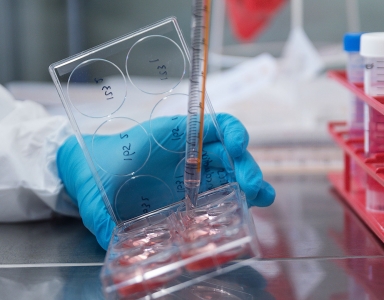Next Generation EU | Towards European Recovery
Bolted onto a revised 2021 – 2027 EU Multi-annual Financial Framework (MFF), the European Commission announced a € 750 billion recovery plan on Wednesday, May 27, that would total € 1,85 trillion for the revised seven-year budget proposal.
Delivering her speech at the premises of the European Parliament in Brussels, European Commission President Ursula von der Leyen set out the means by which Member States’ economies are to be revived whilst facing challenges in light of the Covid-19 crisis. That is, upon approval from EU heads of state and government expected by the end of summer after presumed fierce negotiation.
Next Generation EU
The € 750 billion package – called Next Generation EU – provides a substantial amount of grants worth € 500 billion and loans equalling € 250 billion as well as targeted reinforcements to 2021-2027 MFF programmes. Using Member States’ commitments to the EU budget as guarantees, the European Commission will borrow € 750 billion on financial markets that will then be channelled through EU programmes. The funding will then be repaid during a series of Multi-annual Financial Frameworks between 2028 and 2058.
The vast majority of funding channelled into Next Generation EU will be allocated to 2020 and the first four years of the 2021-2027 MFF through:
- new or reinforced funding programmes;
- the grant component of the Recovery and Resilience Facility;
- loans to Member States to finance reform and resilience plans in line with the European Semester, national energy and climate plans and Just Transition Plans.
Next Generation EU, otherwise referred to as the Recovery Instrument, will provide funding across three key pillars:
1. Support to Member States with investments and reforms
- Reinforcements to existing programmes:
- a € 55 billion top-up of the current cohesion policy programmes between now and 2022 under the new REACT-EU initiative to be allocated in accordance with socio-economic impact of the crisis;
- a financial top-up resulting in a budget of up to € 40 billion for the Just Transition Fund, assisting Member States in accelerating the transition towards climate neutrality;
- A € 15 billion top-up of the EAFRD, supporting rural areas in making necessary structural changes in line with the European Green Deal and biodiversity strategies.
- New programme:
- a Recovery and Resilience Facility worth € 560 billion, supporting investments and reforms that most notably centre on increasing resilience of national economies and linking national economies to EU priorities regarding e.g. green and digital transitions.
2. Kick-starting the EU economy by incentivising private investments
- Reinforcements to existing programme:
- a budget upgrade of the InvestEU programme to € 15.3 billion in order to mobilise private investment in projects.
- New programme:
- a € 31 billion Solvency Support Instrument triggering € 300 billion in private resources in order to support companies in sectors, regions and countries most affected;
- a Strategic Investment Facility as part of InvestEU facilitated by € 15 billion in contributions, which will generate investments of up to € 150 billion boosting strategic sectors – of which especially those linked to green and digital transitions – and value chains in the internal market.
3. Addressing the lessons of the crisis
- Reinforcements to existing programmes:
- a € 2 billion budget upgrade of the rescEU mechanism in order to equip the EU to prepare for and respond to future crises;
- a budget upgrade to € 94.4 billion for Horizon Europe in order to facilitate additional projects dedicated to vital research in health, resilience and the green and digital transitions;
- a € 16.5 billion budget upgrade for external action, supporting Europe’s partners at the global level.
- New programme:
- a € 9.4 billion health programme, EU4Health, which will strengthen health security and prepare for future health crises.
The way forward: reaching agreement
Next Generation EU would be created by raising the Own Resources ceiling, which determines the annual maximum amount of resources that can be called from Member States to finance EU expenditure. The increase in the Own Resources ceiling will expire when all funds have been repaid and no liabilities are left.
The European Commission has invited the European Council and co-legislators to examine Next Generation EU proposals in order to reach a rapid political agreement by the end of July. The European Commission will subsequently work with the European Parliament and the Council of Ministers to finalise an agreement on the Next Generation EU framework and contributing programmes in order to start implementing the recovery plan on January 1, 2021.
In addition to introducing Next Generation EU, the European Commission has proposed to amend the 2014-2020 MFF in order to make an additional € 11.5 billion available from 2020 onwards to fund projects that address the most pressing challenges during the Covid-19 crisis.
More information?
Would you like to know more about Next Generation EU and the related grants? Or are you interested in our services? Contact us for more information. Our specialists will be pleased to answer all of your questions.
Contact us
Or call us directly: 088 495 20 00



